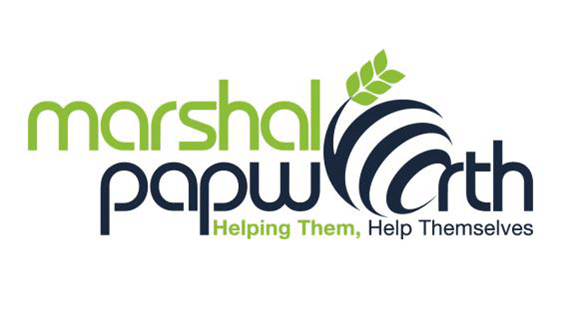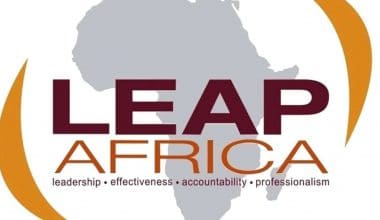You can’t just start applying to study in any School in the Netherlands without seeing these 7 Tips to Apply to Dutch Universities. This post welcomes you to Study in the Netherlands when it comes to Applying for Degrees in Holland.
Although small in size, Holland has a rich cultural tradition. For centuries, the country has had an attitude of openness toward the rest of the world, in business but also in social life. In addition, the Dutch language is spoken in many places worldwide.
Table of contents
Holland, or the Netherlands?
The Netherlands is a kingdom. Its official name is the Kingdom of the Netherlands. It consists of the Netherlands itself and six islands in the Caribbean Sea. The country’s name in Dutch is Nederland, meaning low country and referring to the fact that much of the land is at or below sea level.
Holland stands out for its great inventiveness, problem-solving attitude, and openness to the world. Studying in the Netherlands offers you the space to be a pioneer, be creative, and get connected.
The more than 2,100 English-taught study programs and courses cover various fields. All programs and courses lead to a bachelor’s, master’s or Ph.D. degree, a diploma, or a certificate.
Why Study in the Netherlands?
Quality of higher education
Higher education in Holland has a worldwide reputation for its high quality. This quality is guaranteed through a national system of regulation and quality assurance.
Dutch law (the Higher Education and Research Act) states that degree programs offered by higher education institutions must be evaluated against a specific set of criteria, assessing the content and the level of the course.
Bachelor’s and master’s programs that meet the criteria are accredited (i.e. officially recognized).
In 2024, twelve Dutch universities were in the top 200 of the Times Higher Education World University Ranking, making the Netherlands the fourth best-represented country on the prestigious list.
Pioneering
Holland has proven to be a true pioneer for discovering inventive solutions to everyday problems. The way the Dutch created a large part of the country by reclaiming land from the sea shows their pragmatic approach to living below sea level.
We can also see this approach when it comes to education. For a small country like Holland, an international orientation – extending into education and training – is a must to be a successful competitor in our increasingly internationalized world. Holland was also the first non-English-speaking country to offer courses taught in English.
Creative
The important role of the Dutch in the international design industry is a reflection of their creative drive. The creative sector in Holland is world-famous for its innovative ideas and ground-breaking Dutch Design.
Perhaps because of the Dutch way of teaching, creativity has acclaimed such an important role in Dutch society. Students are challenged to solve problems with an out-of-the-box approach and work together in case studies to gather and share knowledge.
Connected
Being a small country, Holland is open to the world and to surrounding countries. Cooperating with other countries is key to being successful for the Dutch.
The strong connection between Dutch higher education institutions and the business world creates possibilities for practical assignments and internships to prepare students for a career in an international environment.
The Dutch education system is interactive, student-centered, and focused on teamwork, which makes it easy to meet other international students.
The teaching method at Dutch higher education institutions is founded on respect for each individual’s opinions and convictions.
This respect is a national virtue that characterizes Holland’s diverse and plural society. The method aims to give students the attention and freedom they need to develop their opinions and creativity in applying new knowledge.
Step by Step: How to Apply to Dutch Universities
The Dutch have a saying: “A good preparation is half the work”. Meaning that once you have prepared yourself for what is about to come, the rest will follow easily.
When you have decided to go to study in the Netherlands, you will need to prepare for your stay.
You will have to decide what to study and where; you will have to apply to an institution, finance your studies, look for a place to live, and so on. The step-by-step checklist will help you determine what to do, when, and where.
Step 1: Find a study program
Holland offers more than 2,100 study programs and courses taught in English. Examine the available study programs on this website.
Step 2: Check accreditation and institution
Check whether the program of your choice is accredited by the NVAO (Accreditation Organization of The Netherlands and Flanders) or another organization.
Accreditation is an important indication of the quality of the program. Check if the institution of your choice has signed the Code of Conduct.
By signing the Code of Conduct, the institution guarantees students the quality of their programs, student recruitment, selection, and counseling procedures. Visit www.internationalstudy.nl to find a list of institutions that have signed the Code of Conduct.
Step 3: Arrange to fund
If you cannot rely on your own funds for studying, you can look for scholarships and determine eligibility. On the www.grantfinder.nl, you can find an overview of scholarships available for students who wish to come to Holland. You can also contact the Dutch Embassy in your home country or your institution’s international relations office.
Step 4: Meet the requirements and apply for the course
Find out what the admission requirements are for the program of your choice. Contact the Dutch institution offering the program to ask for more information about admission requirements, language requirements, etc.
Generally, the main requirement for a bachelor’s program admission is a secondary-school diploma at the appropriate level.
For admission to a master’s degree program, applicants must have at least a bachelor’s degree or its equivalent. IELTS and TOEFL are commonly accepted language tests.
The required scores are 550 (paper-based) or 213 (computer-based) for TOEFL. For IELTS, a score of at least 6 is required.
If the program is suitable and you meet the requirements, follow the institution’s procedure for admission. Follow the directions of the institution on how to apply. Often this information is listed on the course website of the institution.
Step 5: Follow the immigration regulations
Check which immigration regulations apply to you. It may take up to six months to collect the required documents to receive your actual visa (if needed). You can find out which rules apply to you in the Student Visa Wizard.
Gather all the relevant documents required by the Dutch immigration authorities. If you need an entry visa (MVV), your host institution must arrange it. Find out which documents you need in the Student Visa Wizard.
Step 6: Find a place to live
Once you arrive in Holland, you will need a place to live. Finding housing can be difficult, make sure you start looking as soon as possible.
Don’t forget to ask your host institution for help arranging a place to live. Your institution should be able to provide you with more housing information.
Step 7: Make sure you are insured
All students in Holland are obliged to have health insurance. There are several options for you to arrange this. Check the information and regulations about health insurance to find out how you can arrange your insurance.
And finally: Enjoy your time in Holland as you Apply to Dutch Universities!
We Also Recommend it!
- Employment-Based Postgraduate Scholarship, Ireland
- Full List of Low Tuition Universities in Turkey for International Students
- 30 scholarships to study in Portugal For International students
- Czech Government Scholarships for Developing Countries
- APPLY: Netherlands Fellowship Programme
Does this article meet your immediate needs? If yes, leave us with a 5-star rating in the Review Box below. Remember to leave a comment on the comment box to express your concern or ask the question.





